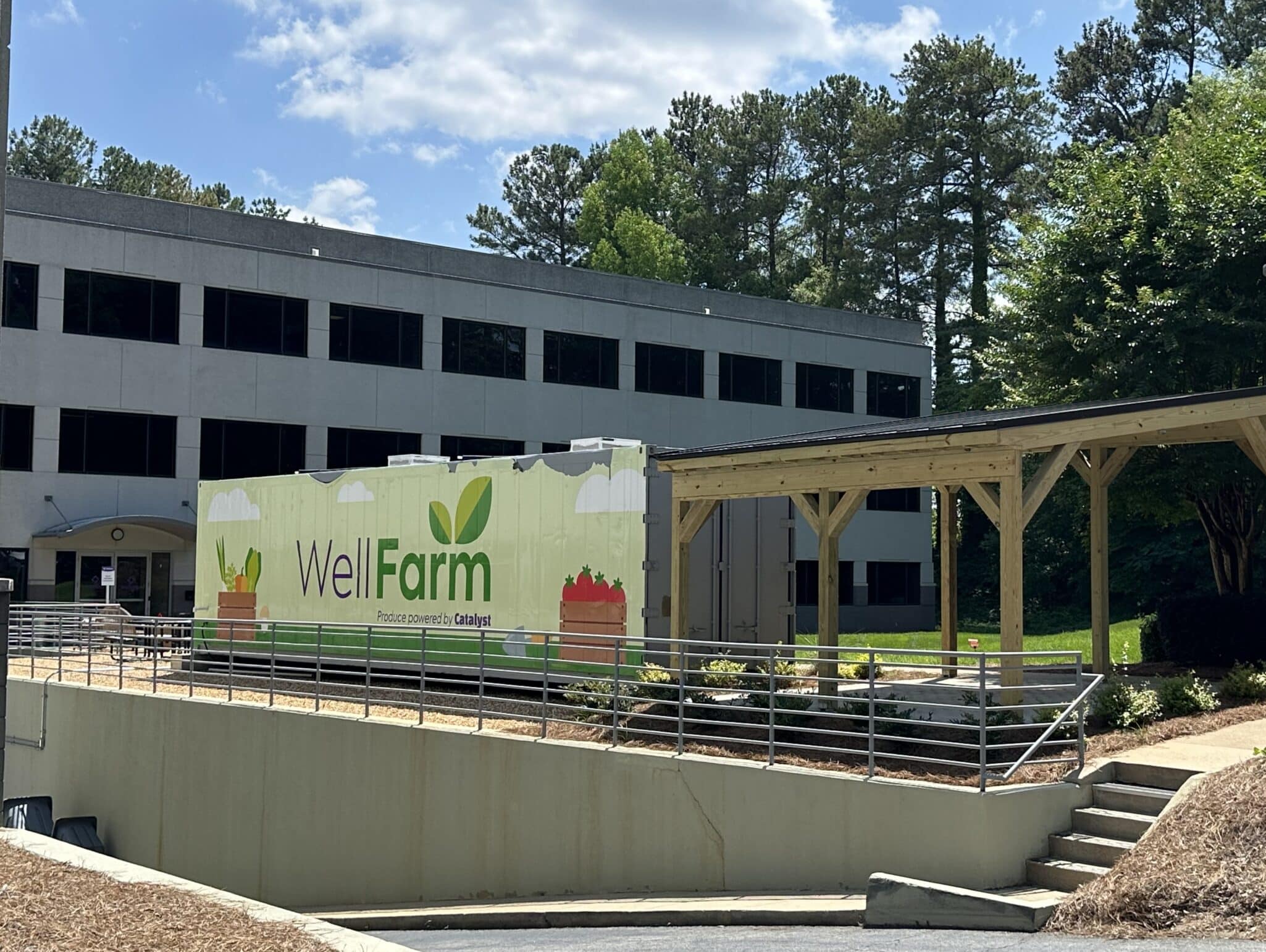Key Takeaways:
- FarmBox Foods partners with healthcare systems to deploy container farms for onsite food production.
- Hospitals use fresh produce for patient meals, wellness programs, and community outreach.
- The systems are designed for non-farmers, with training and long-term operational support.
- Benefits include improved nutritional outcomes, predictable food budgets, and reduced reliance on external suppliers.
- FarmBox Foods is contributing to ESG goals and the growing “food as medicine” movement.
Container Farms for Healthcare: Localized Food Production in Hospitals
As conversations around food equity, health outcomes, and supply chain vulnerabilities grow louder, FarmBox Foods is introducing a tangible solution: containerized vertical farms tailored to the healthcare industry. During an interview with iGrow News, Chris Michlewicz, VP of Communications, and Brynne Doughten, Sales Program Development Consultant, shared how their company’s upcycled shipping containers are becoming integral to promoting better nutrition and community health from within hospital campuses.
“We're on pace to double our sales from last year,” said Michlewicz. “We’re in a lot of growing vertical markets, and hospitals are beginning to see the real value in producing fresh food onsite.”
From Surgery Rooms to Container Farms for Healthcare
Doughten, who joined FarmBox Foods after a career in medical device sales, brings firsthand experience from inside clinical settings. “I saw the need for mission-driven change in healthcare,” she explained. “Our container farms eliminate the need for long-haul supply chains and provide nutrient-rich produce steps away from patients.”
Each FarmBox unit replicates the annual productivity of approximately 2.5 acres of farmland within 320 square feet. These climate-controlled systems are pesticide-free and customizable to meet the nutritional goals of hospitals, community centers, and senior living facilities.
More Than Produce: Container Farms for Healthcare as Therapy and Engagement
Beyond supplying lettuce, herbs, and kale for patient menus, the farms serve as platforms for therapy, workforce development, and local engagement. “There’s something calming about walking into a brightly lit space filled with fresh greens,” said Michlewicz. “It’s a therapeutic environment for both patients and staff.”
One standout example is Wellstar Hospital’s “WellFarm” in Georgia, which uses its unit to stock its bistro, supply patient meals, and even sell produce in the gift shop. “They’re growing basil, thyme, kale, and packaging herbs for use in dietary therapy,” Doughten said. “Vitamin-rich greens are especially important for immunocompromised patients.”
Designed for Non-Farmers, Supported for Life
A key strength of FarmBox’s model is its accessibility. “Most of our customers have no farming background,” Doughten emphasized. “We provide tailored training and 90 days of operational support, plus ongoing partnership.”
This support structure enables hospitals to integrate farming into existing food and environmental services, using current staff with minimal overhead.
Impact and ROI in Health and Finance
While data is still being collected from active deployments, early results are promising. “Hospitals are looking beyond financial ROI and starting to measure nutritional ROI,” said Doughten. “That includes reduced readmission rates tied to nutrition-related illnesses.”
FarmBox also provides clients with detailed pre-sale ROI spreadsheets, including yield estimates, operational costs, and potential savings. According to Michlewicz, “It’s not just about cutting produce bills. It’s about long-term resilience, health equity, and community trust.”
Looking Ahead: Scale, Policy, and the Food-as-Medicine Movement
With hospitals in Colorado and Georgia already operational, FarmBox Foods has seen interest grow rapidly across North America. “We recently presented to over 100 hospital systems during a webinar that focused on onsite food production and patient outcomes,” Michlewicz noted. “It’s scalable. If a network has 25 locations, we can replicate that success across their entire footprint.”
FarmBox is also aligned with broader policy trends. New federal legislation offering nearly 100% bonus depreciation has made container farm investments more appealing to hospital CFOs and impact investors alike.
“We’re part of the food-as-medicine movement,” Doughten concluded. “We help patients recover, reduce malnutrition risks, and engage communities in a way that makes lasting health impacts. And we’re just getting started.”
Learn more about FarmBox Foods’ technology.


